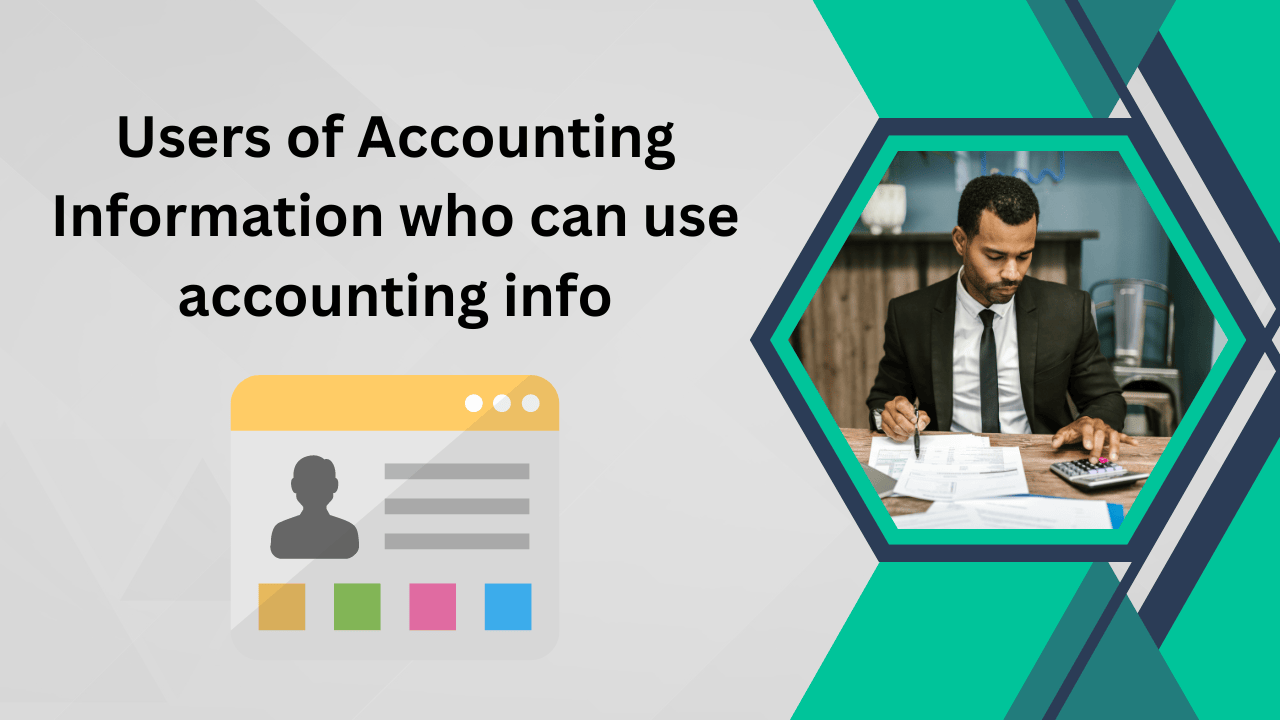Users of Accounting Information: Accounting is of primary importance to the proprietors and the managers. However, other persons such as creditors, prospective investors, etc. are also interested in the accounting information. Generally, users of accounts are classified into two categories, (a) internal management and owners; and (b) external users or outsiders. Management accounting is concerned with identifying information requirements as well as methods of providing such information to management while information requirements of the outside users are generally served by financial statements. Following are the various users of accounting information:
Users of Accounting Information
(i) Investors: They provide risk capital to the business. They need the information to assess whether to buy, hold, or sell their investment. Also, they are interested to know the ability of the business to survive, prosper, and pay dividends. In the non-corporate sector, where ownership and management are not essentially separated, the owners still need information about the performance of the business and its financial position to decide whether to continue or shut down. Must Read How to Read or Analyse a Balance Sheet.
(i) Owners/Shareholders: The primary aim of accounting is to provide necessary information to the owners related to their business.
(ii) Managers: In large business organizations and corporations, there is a separation of ownership and management functions. The managers of such business houses are more concerned with the accounting information because they are answerable to the owners.
(iii) Prospective Investors: The persons who are contemplating an investment in a business will like to know about its profitability and financial position. They derive this information from the accounting reports of the concern.
(iv) Creditors, Bankers, and Other Lending Institutions: Trade creditors, bankers, and other lending institutions would like to be satisfied that they will be paid on time. The financial statements help them in judging such a position. Banks and other lending agencies rely heavily upon accounting statements for determining the acceptability of a loan application. You may also like the Acid Test Ratio or Quick Ratio.
Suppliers and Creditors: They are also interested to know the ability of the enterprise to pay their dues, which helps them to decide the credit policy for the relevant concern, rates to be charged, and so on. Sometimes, they also become interested in the long-term continuation of the enterprise if their existence becomes dependent on the survival of that business. Suppose, small ancillary units supply their products to a big enterprise, if the big enterprise collapses, the fate of the small units also becomes sealed
(v) Government: The Government is interested in the financial statements of business enterprises on account of taxation, labor, and corporate laws. They regulate the functioning of business enterprises for the public good, allocate scarce resources among competing enterprises, control prices, charge excise duties and taxes, and so they have continued interest in the business enterprise.
(vi) Employees: Employees are interested in financial statements because the increase in their salaries and wages and payment of bonuses depends on the size of the profit earned. The growth of the employees is directly related to the growth of the organization and therefore, they are interested to know the stability, continuity, and growth of the enterprise and its ability to provide remuneration, retirement, and other benefits and to enhance employment opportunities.
(vii) Regulatory Agencies: Various Government departments and agencies such as the Company Law Board, Registrar of Companies, Tax Authorities, etc. use accounting reports not only as a basis for tax assessment but also in evaluating how well various businesses are operating under regulatory legislation.
(viii) Researchers: Accounting data are also used by research scholars in their research in accounting theory as well as business affairs and practices. Must Check Steps to Locate Errors.
(ix) Customers: Customers may also have either a short-term or long-term interest in the business entity to know the profitability, liquidity, and solvency position of the company. Customers are also concerned with the stability and profitability of the enterprise because their functioning is more or less dependent on the supply of goods, suppose, a company produces some chemicals used by pharmaceutical companies and supplies chemicals on three months’ credit. If all of a sudden it faces some trouble and is unable to supply the chemical, the customers will also be in trouble.
Public: The public at large is interested in the functioning of the enterprise because it may make a substantial contribution to the local economy in many ways including the number of people employed and their patronage to local suppliers.
Lenders: They are interested to know whether their loan principal and interest will be paid when due







